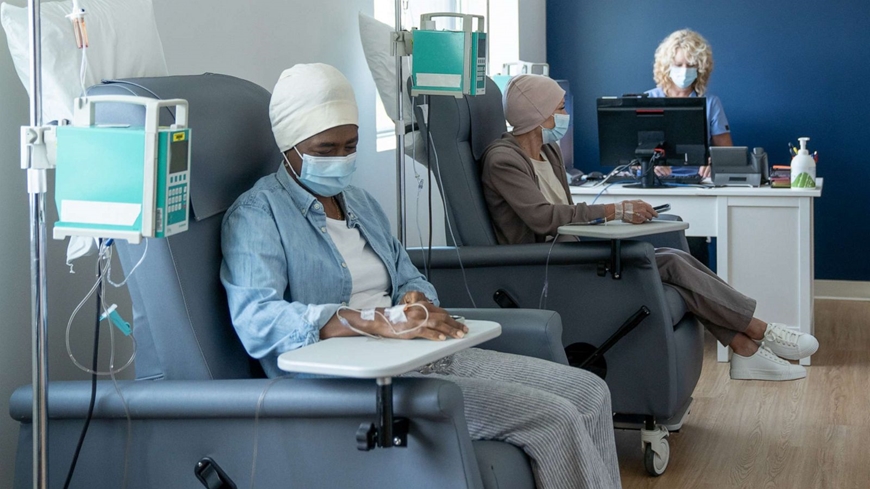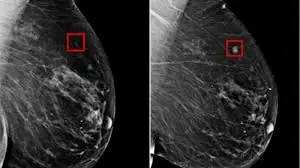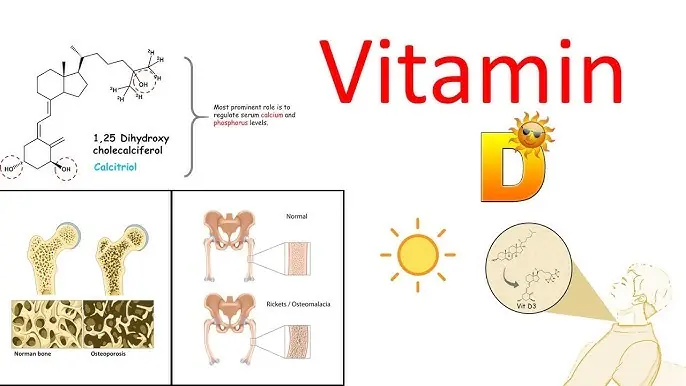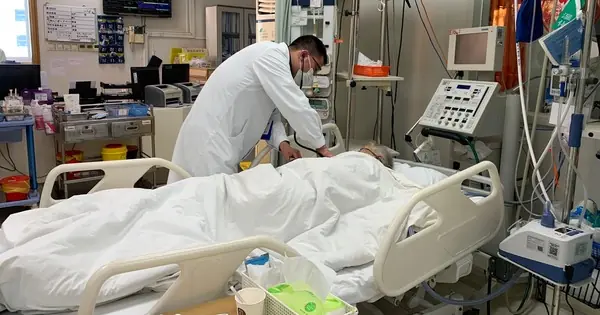
Eight Early Symptoms Found in 23% of Cancer Patients: Warning Signs That Should Not Be Ignored
Early detection of cancer dramatically increases the chances of successful treatment. A recent study has shed light on a concerning reality: around 23% of people diagnosed with cancer reported experiencing specific symptoms long before their official diagnosis. The findings identify eight early warning signs that may seem mild or unrelated but can indicate the presence of cancer. Recognizing and acting upon these symptoms can potentially save lives.
The first and most common early symptom is unexplained weight loss. While many people might welcome weight loss, particularly without effort, sudden and significant weight loss can be a red flag. Cancer affects the body’s metabolism and can cause dramatic drops in weight even when one’s diet remains the same.
Second, persistent fatigue that doesn’t improve with rest can be another subtle but serious symptom. Unlike normal tiredness, cancer-related fatigue is often overwhelming and not related to physical activity or lack of sleep. It may be linked to blood cancers like leukemia or cancers that cause internal bleeding, such as colon or stomach cancer.
The third symptom is unexplained pain that persists. For instance, a constant headache could be a sign of a brain tumor, while back pain might point to cancers of the spine or ovaries. When pain lasts for weeks without a clear cause, medical consultation is crucial.
Fourth, lumps or unusual swellings on the body—particularly in the breast, testicles, lymph nodes, or soft tissues—should not be overlooked. While not all lumps are cancerous, they can be among the first noticeable signs of certain cancers, including breast and lymphoma.
Fifth, changes in bowel or bladder habits can also be early warning signs. Persistent diarrhea, constipation, or a change in the size or color of stool can be related to colorectal cancer. Similarly, frequent urination or blood in urine could signal bladder or prostate cancer.
The sixth symptom involves persistent cough or hoarseness, which could be early signs of lung or throat cancer. If a cough lasts for more than three weeks or there’s a noticeable change in the voice, it’s time to see a doctor.
Seventh, unusual bleeding—whether from the rectum, vagina (outside of menstruation), coughing up blood, or bleeding gums—can indicate several types of cancer. Bleeding is often a sign that a tumor has invaded nearby tissues or blood vessels.
Finally, changes in the skin, such as new moles, changes in existing moles, jaundice (yellowing of the skin or eyes), or unexplained rashes, could be early signs of skin cancer or cancers that have spread to the liver.
It’s important to stress that having one or even several of these symptoms does not necessarily mean someone has cancer. However, the presence of these signs—especially if persistent—warrants a medical check-up. The problem lies in the fact that these symptoms can often be mistaken for common conditions or ignored entirely.
The key takeaway from the research is that cancer can manifest subtly. A proactive approach—listening to our bodies and not dismissing unusual symptoms—can lead to earlier diagnoses and better outcomes. Early-stage cancers are much more treatable than those detected later, often with less aggressive therapy and higher survival rates.
In conclusion, the eight early symptoms identified in nearly a quarter of cancer patients—unexplained weight loss, fatigue, pain, lumps, changes in bodily functions, persistent cough, unusual bleeding, and skin changes—are critical signals that should not be ignored. Anyone experiencing them should consult a healthcare professional promptly. Early detection truly can make all the difference.
News in the same category


AVOID Bananas If You Suffer From These 5 Health Problems!

Doctors reveal how many times you should be able to swallow in 30 seconds to be 'healthy' and the results are shocking

Crockpot Sausage and Potatoes

A New Type of Drink Found to Help 'Push Back' Cancer: It’s Not Tea or Coffee

Not So Impossible Cheeseburger Pie

35-Year-Old Man’s Sore Throat Turned into Cancer After 5 Chemotherapy Sessions—Doctor Urges: Throw These 2 Things Out of Your Fridge

Doctors forced to apologize after 32-year-old woman given hysterectomy to treat 'tumor on her ovary' but biopsy showed no signs of cancer

Liquid Gold Tea: A Natural Remedy for Inflammation

Caramel Apple Fudge

Mozzarella Fried Cheese Bites: Cheesy, Crunchy, and Irresistible

You are doing it all wrong. Here's how to drink 8 glasses of water each day

A new type of Artificial Intelligence can detect breast cancer 5 years before diagnosis

New Discovery: Protein AP2A1 May Hold the Key to Reversing Aging at the Cellular Level

Why Vitamin D Is Essential for More Than Just Bone Health

Seniors: This Castor Oil + Baking Soda Trick Is Blowing Doctors’ Minds!

Lemon and Nopal Remedy: A Natural Boost for Your Body

65-Year-Old Man Dies at 11 PM: Doctor Warns Never to Drink These 4 Types of Beverages Before Bed – No Matter How Thirsty You Are

People at Risk of Cancer Often Show 3 Unusual Signs in the Neck – Even One Is a Health Warning
News Post

Oatmeal and Guava: A Natural Remedy for Leg Cramps, Diabetes, and High Blood Pressure

AVOID Bananas If You Suffer From These 5 Health Problems!

My Greedy In-Laws Tried to Get Rid of Our Sick Mom, but She Brilliantly Taught Them a Lesson

I Got Back from a Work Trip and Found My House Completely Empty

3 Eye-Opening Stories About Husbands Who Didn't Appreciate Their Devoted Wives – And the Important Lessons They Learn in the End

Doctors reveal how many times you should be able to swallow in 30 seconds to be 'healthy' and the results are shocking

14 Fish You Should Consider Never Eating

40+ Weird Signs That Lead To a Cancer Diagnosis

Pudding Cool Whip Frosting

NASA’s Mars Rover Uncovers Mysterious Spheres On The Planet’s Surface, Leaving Experts Baffled

Depressing find at the bottom of the Mariana Trench is a warning to the world

Crockpot Sausage and Potatoes

People Freaked Out After Spotting Creepy Hidden Face in Group Photo

A New Type of Drink Found to Help 'Push Back' Cancer: It’s Not Tea or Coffee

This One Everyday Habit Is Draining Your Electricity Bill — And No One Talks About It

Not So Impossible Cheeseburger Pie

35-Year-Old Man’s Sore Throat Turned into Cancer After 5 Chemotherapy Sessions—Doctor Urges: Throw These 2 Things Out of Your Fridge

Why Do Cars Have Gas Tanks on Different Sides?
